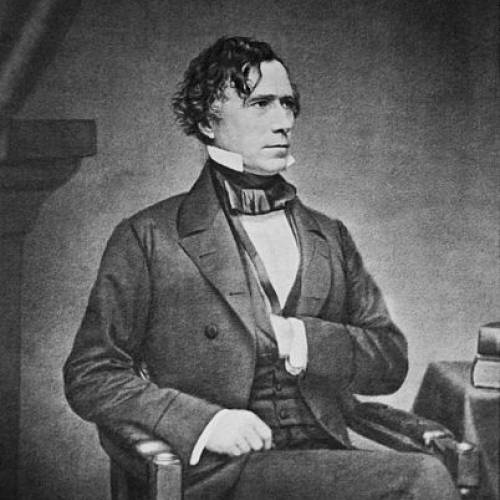 https://heaven.world/en/franklin-pierce
https://heaven.world/en/franklin-pierce
Firstname
Franklin
Lastname
Pierce
Name
Franklin Pierce
lived from:
1804-11-23
lived until:
1869-00-00
Franklin Pierce was the 14th President of the United States. Pierce was a northern Democrat who saw the abolitionist movement as a fundamental threat to the unity of the nation. His polarizing actions in championing and signing the Kansas–Nebraska Act and enforcing the Fugitive Slave Act alienated anti-slavery groups while failing to stem intersectional conflict, setting the stage for Southern secession and the US Civil War. Historians and other scholars generally rank Pierce as among the worst of US Presidents.
Born in New Hampshire, Pierce served in the U.S. House of Representatives and the Senate until he resigned from the latter in 1842. His private law practice in his home state was a success; he was appointed U.S. Attorney for his state in 1845. Pierce took part in the Mexican–American War as a brigadier general in the Army. Seen by Democrats as a compromise candidate uniting northern and southern interests, he was nominated as the party's candidate for president on the 49th ballot at the 1852 Democratic National Convention. In the 1852 presidential election, Pierce and his running mate William R. King easily defeated the Whig Party ticket of Winfield Scott and William A. Graham.
While Pierce was popular and outgoing, his family life was a grim affair, with his wife Jane suffering from illness and depression for much of her life. All of their children died young, their last son being gruesomely killed in a train accident while the family was traveling shortly before Pierce's inauguration. As president, Pierce simultaneously attempted to enforce neutral standards for civil service while also satisfying the diverse elements of the Democratic Party with patronage, an effort which largely failed and turned many in his party against him. Pierce was a Young America expansionist who signed the Gadsden Purchase of land from Mexico and led a failed attempt to acquire Cuba from Spain. He signed trade treaties with Britain and Japan, while his Cabinet reformed their departments and improved accountability, but these successes were overshadowed by political strife during his presidency.
His popularity in the Northern states declined sharply after he supported the Kansas–Nebraska Act, which nullified the Missouri Compromise, while many whites in the South continued to support him. Passage of the act led to violent conflict over the expansion of slavery in the American West. Pierce's administration was further damaged when several of his diplomats issued the Ostend Manifesto, calling for the annexation of Cuba, a document which was roundly criticized. Although Pierce fully expected to be renominated by the Democrats in the 1856 presidential election, he was abandoned by his party and his bid failed. His reputation in the North suffered further during the Civil War as he became a vocal critic of President Abraham Lincoln. Pierce, who had been a heavy drinker for much of his life, died of severe cirrhosis of the liver in 1869.
Concord (NH), United States
https://en.wikipedia.org/wiki/Franklin_Pierce